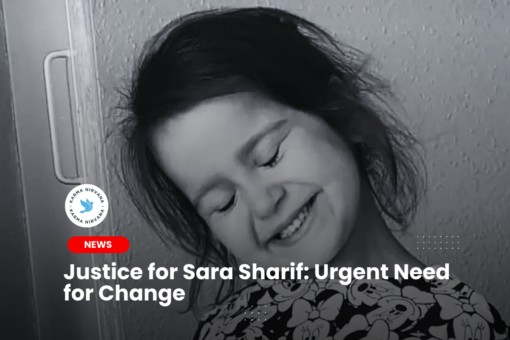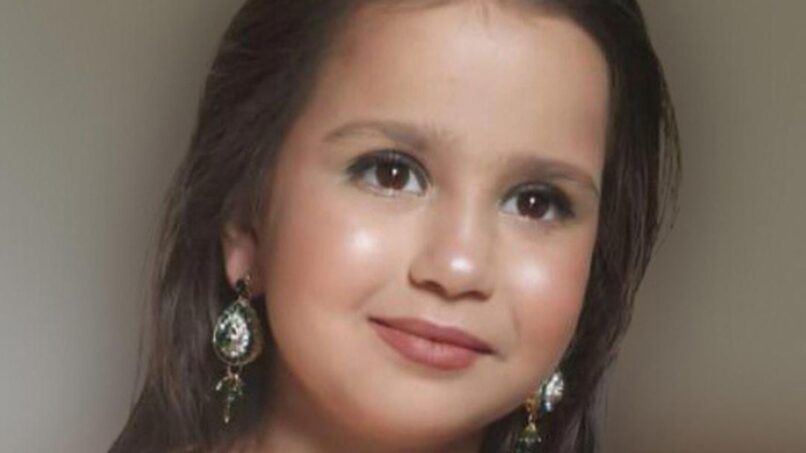
Today, at the Old Bailey, Sara Sharif’s father, Urfan Sharif (42) and stepmother, Beinash Batool (30), were sentenced to life in prison and a minimum of 40 years and 33 years respectively in prison for their roles in Sara’s tragic and senseless death. Sara’s uncle Faisal Malik (29) was sentenced to 16 years after being convicted of causing or allowing her death.
Sara, just 10 years old, suffered horrific abuse during her short life, and many reading this will already be aware of the brutal abuse and conditions she was subjected to in the lead up to her death. On 8th August 2023, Sara died at the family home in Woking, Surrey, after enduring sustained, deliberate cruelty at the hands of those who should have protected her. In the early hours of 10th August 2023, after fleeing to Pakistan with Batool and Malik, Sharif alerted Surrey Police to Sara’s death via a 101 call.
Family Court Decision Concerns
Sara’s death and suffering raises urgent questions around safeguarding, child protection, and systemic failings in family courts. Despite clear social services concerns and Sharif’s documented history of violence, Sara was still placed in his care. Sharif had previously been ordered to complete a domestic violence perpetrator program and was initially restricted to supervised visits. However, with Batool’s support, he was granted full custody.
The decision to place Sara in Sharif’s care – despite his history of abuse – demonstrates the devastating consequences when risks are overlooked. Family courts must treat allegations of violence with the utmost seriousness, prioritising the safety and wellbeing of children above all else. Sara deserved a life full of safety, joy, and opportunity. Instead, she became a victim of repeated abuse and systemic oversight.
HBA Involvement
While HBA was not mentioned in the sentencing remarks, Sara’s tragic death reveals patterns of abuse that align with key triggers we frequently see in Honour Based Abuse cases. During sentencing, the judge remarked on how Sara was treated differently because she was a girl – a significant factor often present in HBA, and one of the most common triggers observed on our helpline. This abuse can stem from deeply rooted beliefs about gender roles, where girls face greater scrutiny and control.
Sara’s situation was further complicated by her position within the family. She was a child from a previous relationship, which can exacerbate risks in HBA dynamics, as children from “different mothers” can be viewed as outsiders, treated as less deserving or targeted for abuse. This can lead to a dangerous escalation of violence, where the child becomes a focus for controlling behaviours and punitive treatment. Sara’s case highlights the need for professionals and safeguarding systems to recognise these triggers of HBA and act urgently to protect vulnerable children.
Government’s Child Protection Proposals Must Go Further to Protect Vulnerable Children
Whilst we welcome the government’s commitment to strengthening child protection measures, it is critical that these proposals are carefully considered to ensure they deliver real and lasting change for vulnerable children. A key example is the proposal to remove parents’ automatic right to home-school their child if they are under a child protection investigation or plan. While this appears a step forward, it is deeply flawed when viewed through the lens of Sara Sharif’s case.
In March 2023, Sara’s school referred concerns to Surrey social workers after teachers noticed bruising on her face. This was a crucial opportunity to intervene and protect her. Yet, the referral was closed with no further action, and Sara was never placed under an investigation or protection plan. Under the proposed measures, Sara would still have slipped through the cracks because the system failed to identify her as a child at risk. Her tragic death underscores the urgent need for social workers to be properly trained, supported, and equipped to act decisively when children’s safety is at stake. When social care fails, the consequences are fatal.
This is not the first time the system has failed children in desperate need of protection. The deaths of Victoria Climbié, Peter Connelly (Baby P), Star Hobson, Arthur Labinjo-Hughes, and now Sara Sharif expose the same heartbreaking failures: missed warning signs, poor communication, and a lack of accountability. Every serious case review offers the same lessons, yet systemic change remains slow and inconsistent. How many more children must die before real action is taken?
The government must address the deep-rooted, recurring issues that have plagued our child protection systems for decades. Key priorities include:
- Improved Multi-Agency Collaboration: Schools, police, health services, and social care must share information effectively and act swiftly to prevent harm.
- Accountability and Oversight: Local authorities and practitioners must be held to account when systems fail, with oversight mechanisms that drive tangible change.
- Training and Workforce Support: Social workers must receive high-quality training, adequate resources, and supervision to handle complex cases with rigour and urgency.
- Early Intervention: Safeguarding must focus on early intervention and prevention to protect children before harm escalates.
- Child-Centred Practice: The child’s voice, safety, and experiences must be at the heart of every decision made.
The government must move beyond proposals that appear symbolic or reactive. Reform must be fit for purpose, not tokenistic. We need meaningful engagement with frontline professionals, like those of us who confront these challenges every day, to ensure the changes are grounded in reality.
We owe it to Sara Sharif, Star Hobson, Arthur Labinjo-Hughes, Baby P, Victoria Climbié, and every child who has paid the ultimate price for systemic failings, to ensure their deaths are not in vain. The government must deliver reforms that prioritise safeguarding, improve accountability, and truly protect every child at risk. The time for action is now – before another child is failed by the very system meant to protect them.

#WeRemember Sara
As we reflect on this heart-breaking case, we will honour Sara’s memory and call on policymakers to ensure no child faces the same fate. This sentencing marks an important moment of accountability, but true justice will only come when systems are strengthened to recognise, intervene, and protect vulnerable children before it’s too late.
Sara Sharif’s life mattered, and she will not be forgotten.
If you are experiencing Honour Based Abuse, or are concerned for someone you know, please contact our helpline at 0800 5999 247.
